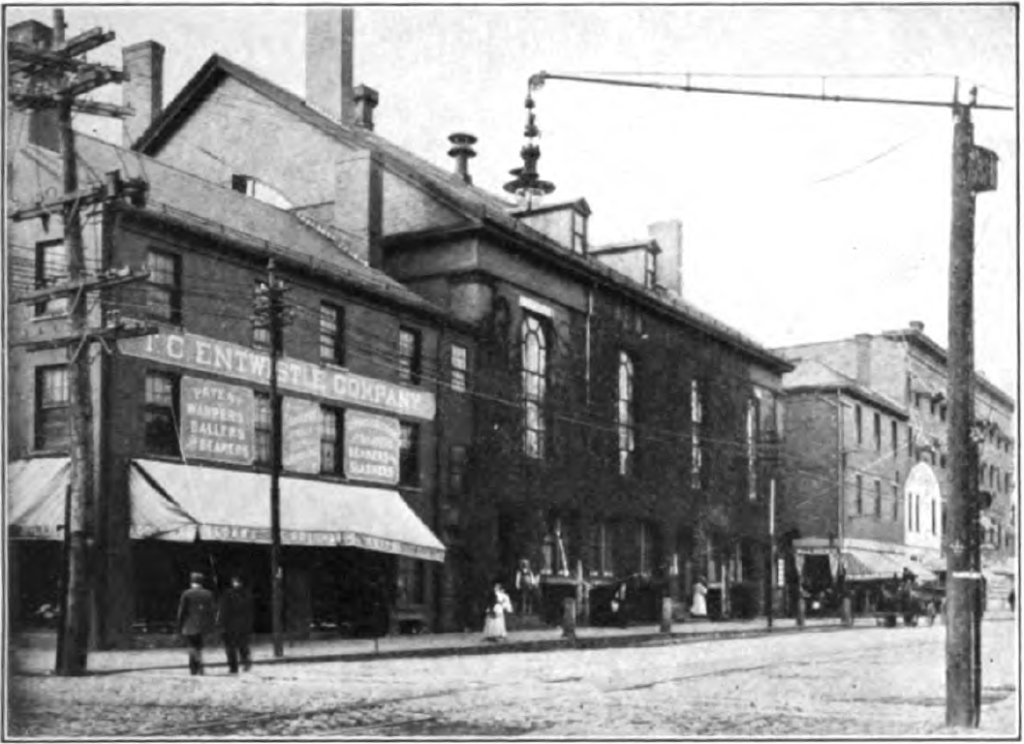Over 170 years ago, an escaped slave from Virginia named Nathaniel Booth opened a barbershop on the first floor of Mechanic’s Hall on Dutton Street, which became a hub for abolitionist activity. There, he and another fugitive from slavery, Edwin Moore, planned fundraising fairs, arranged visiting anti-slavery lectures, and aided fellow freedom-seekers. In April 2021, Mechanic’s Hall became one of 16 new sites officially recognized as part of the Network to Freedom by the National Park Service for its role in the Underground Railroad.
More of the Story
LOWELL — Over 170 years ago, an escaped slave from Virginia named Nathaniel Booth opened a barbershop on the first floor of Mechanic’s Hall on Dutton Street, which became a hub for abolitionist activity. There, he and another fugitive slave, Edwin Moore, planned fundraising fairs, arranged visiting anti-slavery lectures and aided fellow freedom-seekers. In April, 2021, it became one of 16 new sites officially recognized by the National Park Service for its role in the Underground Railroad.
“It’s incredibly exciting,” said Karen Frederick, CEO of Community Teamwork, the organization that now owns the building and uses it for youth services. “This history is so important for people to know about here in the City of Lowell.”
According to the National Park Service, Mechanic’s Hall was built in 1835 by the Middlesex Mechanics Association as a meeting place and library for skilled craftsmen. In 1850, six years after Booth opened his shop, rumors circulated that “manstealers” were coming to Lowell to kidnap runaway slaves, which caused Booth to flee to Canada. However, Booth returned to Lowell after a year and, after an agent for the Boott Cotton Mills helped secure his freedom, he traveled across the Northeast and gave speeches advocating for abolition, according to the University of Massachusetts Lowell.
Mechanic’s Hall and the other additions to the National Park Service network were announced during a presentation led by Vice President Kamala Harris’ husband Douglas Emhoff and Secretary of the Interior Deb Haaland. They join nearly 700 other sites, programs and facilities in the National Park Service’s Network to Freedom program, which preserves and promotes the history of resistance to enslavement through escape and flight.
“Today’s announcement reminds us of the dark pages in our history books, but also highlights the incredible strength and resilience of black communities,” Haaland said. “The Underground Railroad Network to Freedom program helps all of us to fully understand the breadth, depth and diversity of the experiences of the slaves who built our country and sought freedom for themselves and their descendants.”
Celeste Bernardo, superintendent at Lowell National Historical Park, said that this designation not only means that this part of the city’s history will gain greater recognition, but that Lowell will have more opportunities for future grants as well.
“It’s really great news,” Bernardo said. “It’s really important to have these stories told and we are very excited about becoming part of the Underground Railroad Network.”
The announcement capped the National Park Service’s National Park Week, an annual weeklong celebration of the country’s national parks. “The Underground Railroad was pivotal to the ongoing struggle for civil rights,” said Turkiya Lowe of the National Park Service. “The Network to Freedom Program is dedicated to amplifying diverse histories and providing a platform to convey a more complete history of our country.”
(Thanks Lowell Sun)

